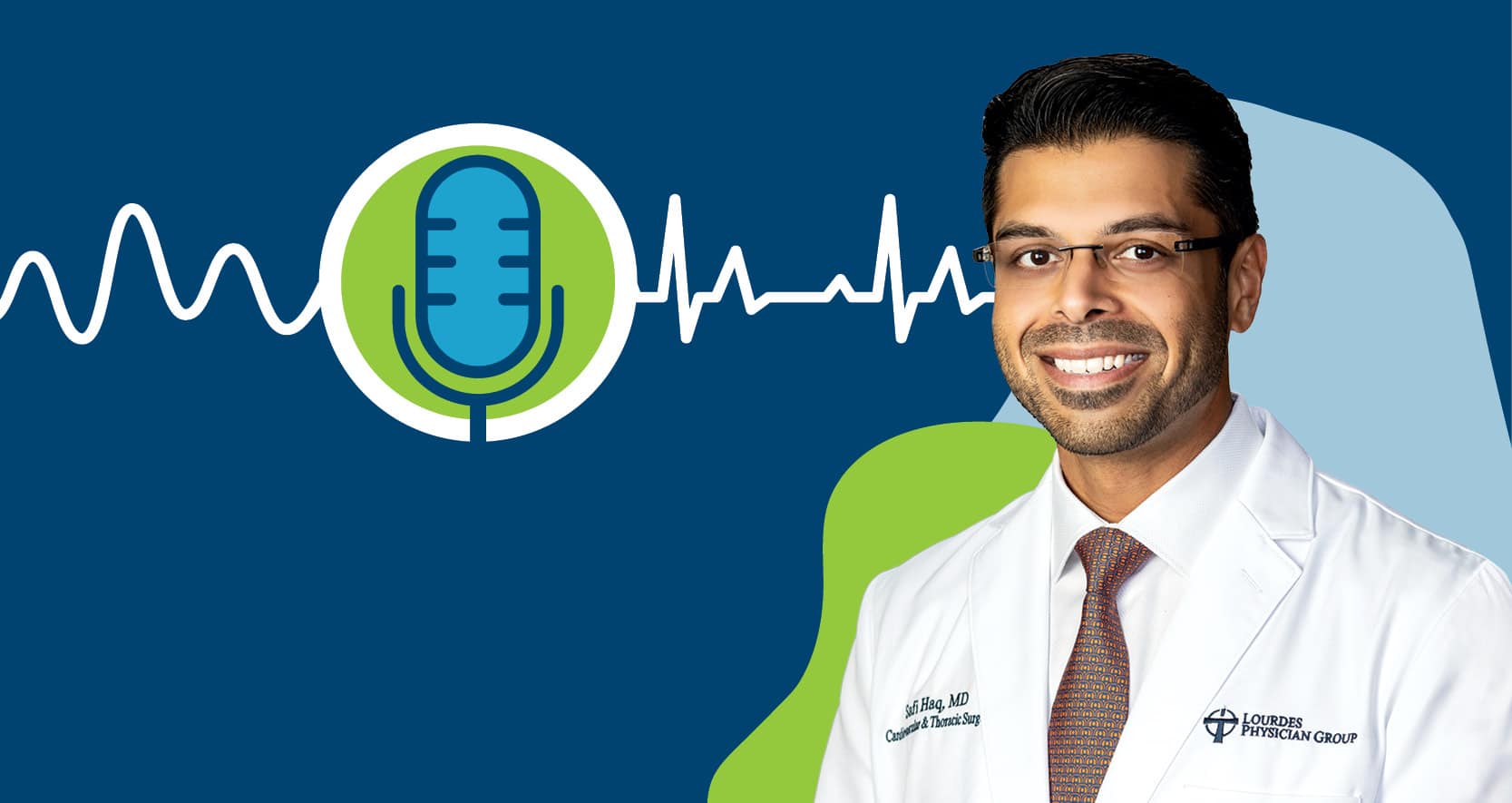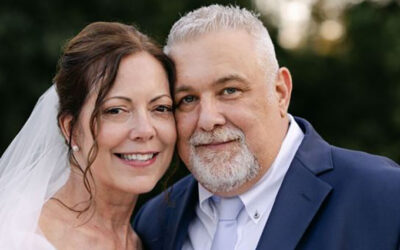Your heart works diligently to pump blood and deliver oxygen and nutrients throughout your body. Taking steps to protect your hard-working heart is key to your overall health, well-being and quality of life.
Safi Haq, MD, cardiothoracic surgeon with Our Lady of Lourdes Health, joins us on this episode of The Doctor Will Hear You Now podcast to share more about heart health including recognizing symptoms of any problems, adopting heart-healthy habits and understanding advancements in cardiac care.
Basic Heart Facts
Your heart is a complex organ made of muscle. Its broader cardiovascular system includes arteries, valves and large blood vessels that enter and exit the heart. A problem with any of those things may be heart disease.
Common problems include weakening of the heart muscles, arterial blockages, valve issues (such as tightness or leakage) and tears in large blood vessels.
Heart Attack and Heart Failure
The easiest way to understand a heart attack is that the heart is starved for oxygen and is doing a lot of work to compensate for blockages that don’t let enough blood get to the muscle, leading to the death of heart muscle cells.
Heart failure is a broader term describing the heart’s inability to pump blood efficiently. Heart failure can happen as a result of a heart attack. When the heart cannot pump blood adequately, it may cause blood to flow backward and accumulate in the heart, further compromising its function.
Recognizing Symptoms
Early detection and timely intervention can make a difference in a patient’s recovery and even survival when it comes to a heart attack. Stay in touch with how you’re feeling and get checked out if anything is feeling off.
The most common heart attack symptom is significant chest discomfort, which can occur with or without physical activity. Other warning signs include difficulty breathing and changes in level of fatigue. Heart disease symptoms may differ between men and women, with women occasionally experiencing atypical presentations like a feeling of heartburn.
“In patients who are at risk for developing heart disease those are really important things to pay attention to,” Dr. Haq says. “It’s not infrequent we have patients who ignore or make light of their symptoms because they chalk it up to age. Sometimes that’s not the case and there is an underlying cause that can be treated.”
Regular Check-ups and Lifestyle Modifications
Preventing heart disease starts with adopting a heart-healthy lifestyle. This includes:
- Quitting smoking
- Maintaining a balanced diet
- Regular exercise — even 30 minutes of aerobic exercise three times per week can go a long way
- Regular check-ups with your primary care provider
Pay attention to any unusual symptoms and make sure to complete any recommended screenings.
Heart disease has a very strong genetic component. “If you’re prone, it should not come as a surprise,” Dr. Haq says. “But it’s definitely not game over.” Recognizing your risk can help with prevention.
Heart Treatment Advancements
In recent years, heart treatments have advanced significantly, allowing for less invasive procedures and shorter hospital stays. Many cardiac surgeries can now be performed without opening the patient’s breastbone, reducing the need for heart-lung machines and minimizing recovery time.
“I’m fortunate in that I trained very recently and with a lot of cutting-edge technology,” Dr. Haq says. He has yet to meet a patient who hasn’t been OK with a procedure that keeps them from needing their chest cracked open.
“The real benefit comes for patients who otherwise wouldn’t tolerate heart surgery,” he says. “We have a lot more options in our toolbox. It’s a very exciting time to be practicing.”
Collaborative Cardiac Care
At Our Lady of Lourdes Health and across our health system, a collaborative and multidisciplinary approach is emphasized for cardiac care. Cardiac and thoracic specialists work together to formulate the best treatment plan for patients, ensuring decisions are made in the patient’s best interest, considering the perspectives and expertise within the team.
Listening to Patients
Our health system made the promise to listen to our patients understand their stories and be full partners in health. Dr. Haq lives that out through his work. By actively listening he gains a deeper understanding of his patients’ needs, allowing him to provide personalized and effective care.
“I listen. I go in not to tell them what I’m thinking, what I’m planning to do or what I think should be done,” he says. “If you listen long enough every patient will tell you their diagnosis.”
Cardiac wellness is the foundation of a healthier heart and a healthier life. Embrace the journey toward a healthier heart.




